
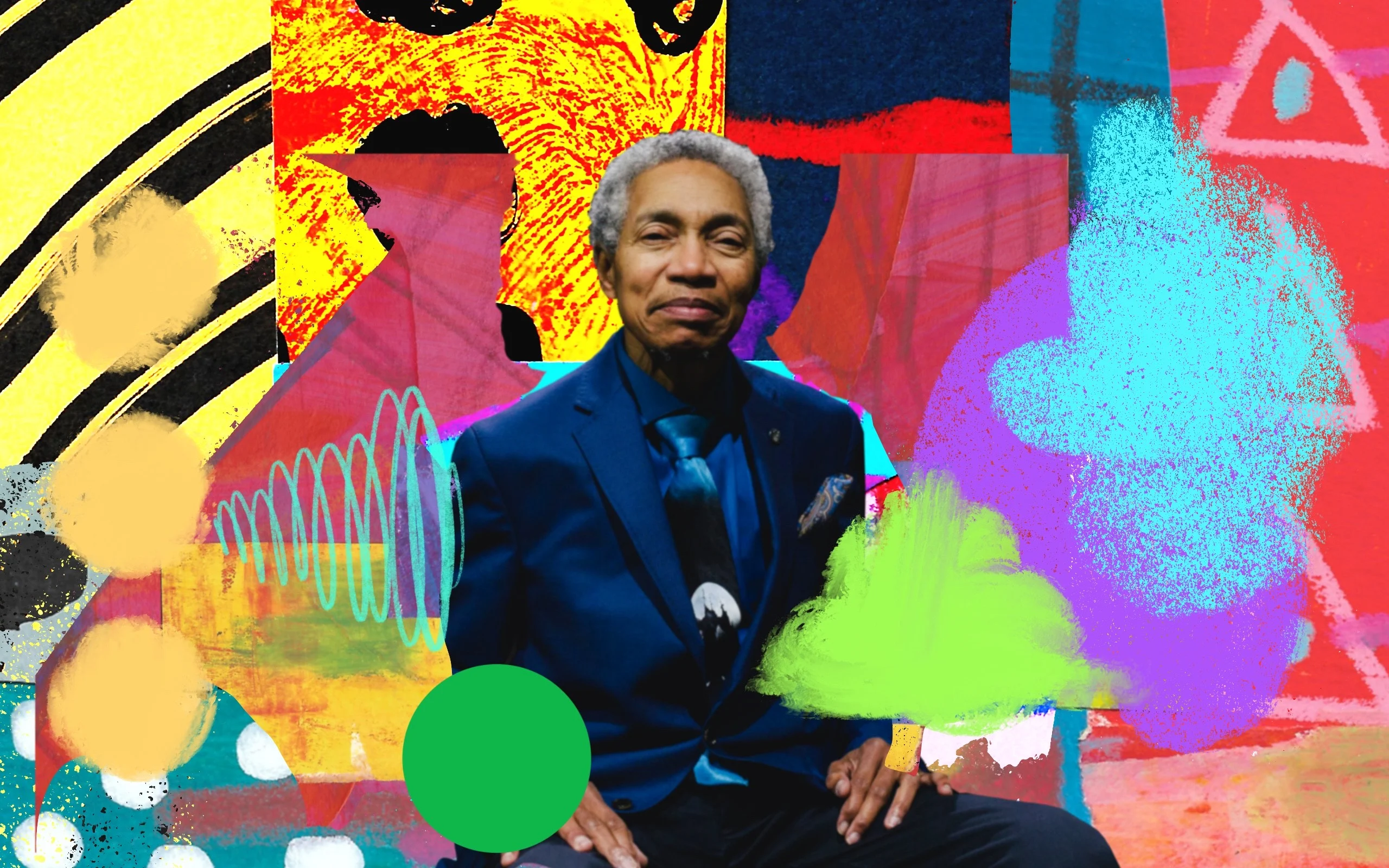
Beverly Glenn-Copeland has lived an extraordinary life. Now a 76-year-old Black, transgender untapped visionary who trained in classical music, he lived his life as a lesbian until he found the language for his identity in 1994. As well as having a stint working in kids’ TV, he also spent years creating otherworldly beautiful electronic music at home. Kate Hutchinson meets Beverly and speaks to a handful of artists who have been inspired or moved by his work.
Artwork by NEU TOKYO.
What makes music magical? For Beverly Glenn-Copeland, it’s when he senses “the spirit of the piece” – that’s when it can burst open his “heart chakra.” Music of any kind can bring him to tears, he says, over a Zoom from his home in New Brunswick, Canada, a sea view from the window. Most recently, on tour, it was poet and singer Moor Mother. “I didn't know her music at all and I went to her concert and I just began weeping and weeping and weeping,” he says. “I was floored by what I was listening to.”
It’s curious to hear him talk about the emotional effect of music because his own genre-agnostic songs – sweeping whirls of pastoral avant-jazz, folk and classical to rippling New Age pearls and world-dream-pop incantations – leave people equally spellbound. It feels almost impossible that, for decades, his four astonishing albums, Beverly Copeland (1970) and Beverly Glenn-Copeland (1971), his ambient pièce de résistance Keyboard Fantasies (1986) and Primal Prayer (2004), went largely unnoticed, only reissued in the latter half of the 2010s.
I identified as an interior male but the problem was that nobody was ready to hear that
The music of Glenn, as he is known today, is profoundly moving, and so is his story: a 76-year-old Black, transgender, formerly untapped visionary who trained in classical music; who, as a young woman, had lived as a lesbian until he found the language for his identity in the mid-90s; who acted on kids’ TV while making electronic music at home, in harmony with the natural landscape around him.
Glenn says he finds it challenging to listen back to his early music because he wasn’t fully able to be himself. “It's harder for me to listen to some of it because I know how much I'm fudging it,” he says. “I identified as an interior male but the problem was that nobody was ready to hear that . I couldn't say ‘she,’ I couldn't say ‘her,’ I couldn't say any of those things. The likelihood back in those days of ever being able to put that on an album would have been next to nothing.”
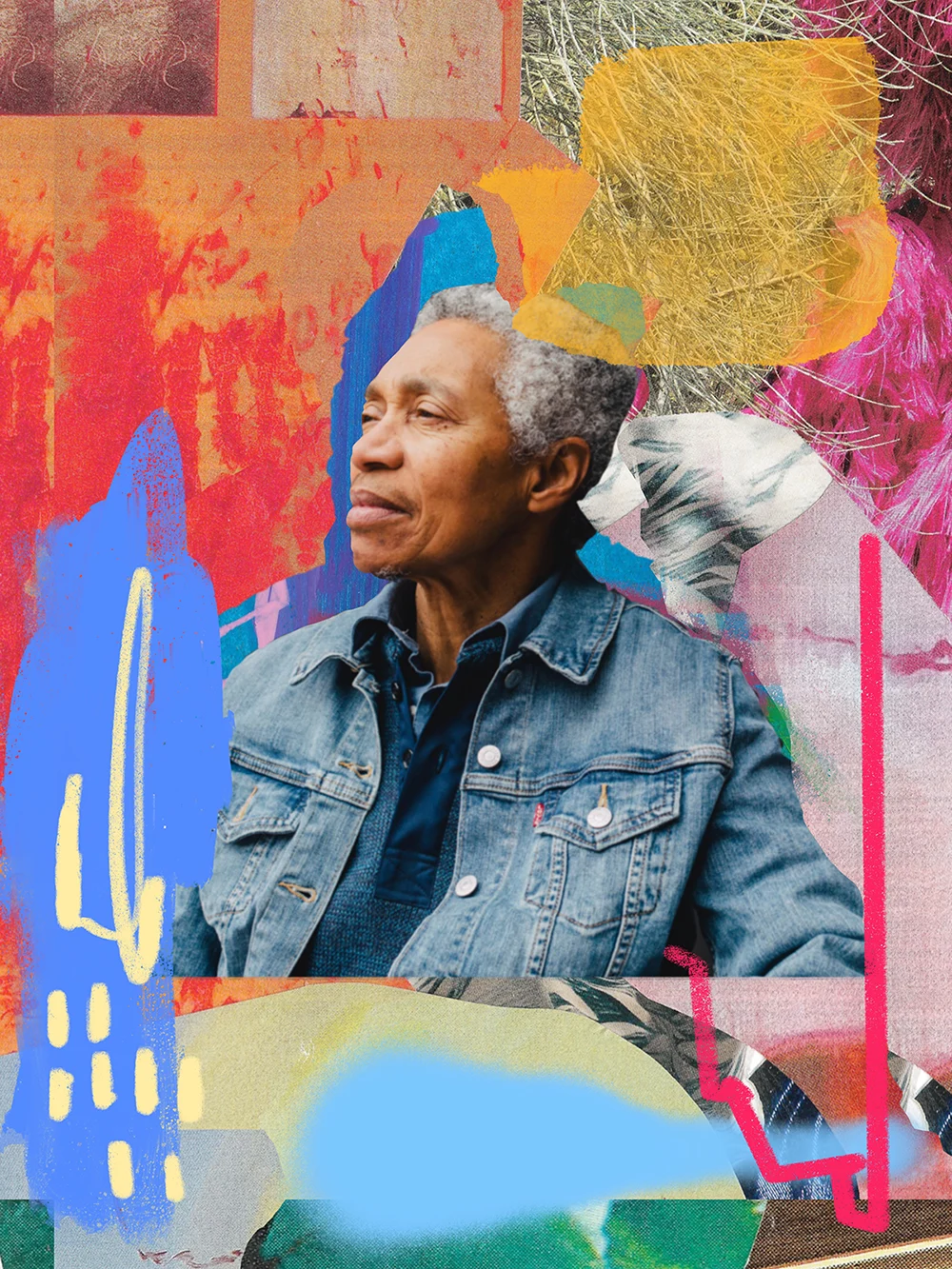
His music moved on in leaps and bounds when he became a Buddhist in 1973. He stopped writing lovelorn songs and instead “infused” his releases with what he’s come to understand in his practice: “compassion, wisdom and infinite courage.” Perhaps it’s for this reason that people tell him that it gives them hope. He’s not disappointed that that music didn’t find an audience in the era it was made; he believes his time is now. “My music was made for them without my knowing it,” he says, of seeing rows of twenty-somethings at his shows. “It was something that they would understand because of who young people are .”
This summer was supposed to be the next stage in Glenn’s comeback. At the start of March, he and his band were due to make a record, then go on tour. His retrospective album was originally to be released as the documentary about him, Keyboard Fantasies: The Story of Beverly Glenn-Copeland, screened at festivals worldwide. Then he and his artist wife Elizabeth suddenly found themselves with nowhere to live. “You laugh and then you cry,” he quips animatedly, like a stand-up comedian delivering a slapstick line to his audience.
I realised how much I need to stop living in the world of anxiety, which is living in the future, thinking about what needs to happen next.
After wealthy benefactors stepped in and gifted them a temporary house, and a successful crowdfunding attempt raised thousands of dollars to help them through the year, life is a little more back on track. If the pandemic has taught Glenn anything positive, it’s the importance of being in the moment. “I realised how much I need to stop living in the world of anxiety,” he says, “which is living in the future, thinking about what needs to happen next. Let's just be here right now.”
The compilation of Glenn’s life’s work will be released at the end of September, a corsucating introduction into the artist he was then and who he is in 2020. It’s unusual for someone to connect in the way that he has but in just a few years, he has found a dedicated new fanbase, the musicians Caribou, Moses Sumney and Devendra Banhart among them. Here, they explain why Glenn's music has resonated so deeply and why it is, indeed, so magical…
Blood Orange
Blood Orange is the pseudonym of Dev Hynes, a London-born, Los Angeles-based musician who has worked with the likes of Solange, Blondie and A$AP Rocky and recently scored the film Queen & Slim. He co-hosted an episode of The Talkhouse podcast with Glenn in January 2020.
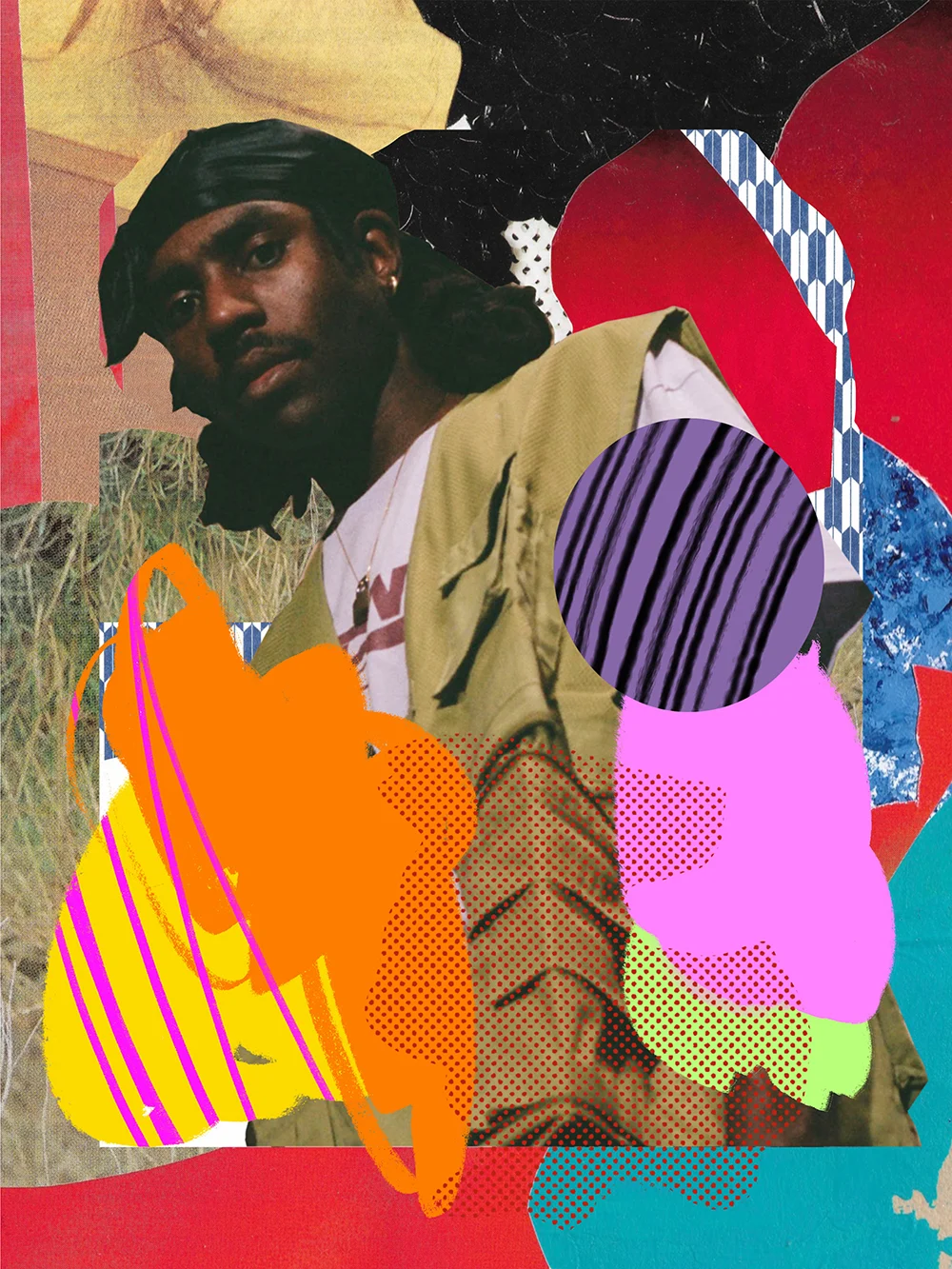
“Sometimes you hear music that feels like you've been let in on a secret. Glenn's music is like that. His music feels otherworldly but also familiar. It felt like something I'd wanted to hear for a long time. It struck a lot of sensibilities that I love and even try and strive for at times. It has a very particular quality: art that is created from such a personal place but is also universal.
I connected to it on a level of hearing music made by a Black person that spanned all of these different things: whether it was pop music or Bach or whatever, I felt those being poured into the work that he was making. Even though I'm older now, I still have that same sensibility as when I was younger; I'm just looking for anyone that I can connect with or even who looks slightly similar to me within these worlds.”
Robyn
The Swedish pop artist, whose last album was 2019’s critically acclaimed Honey, has been a fan of Glenn since hearing Keyboard Fantasies in a rehearsal.
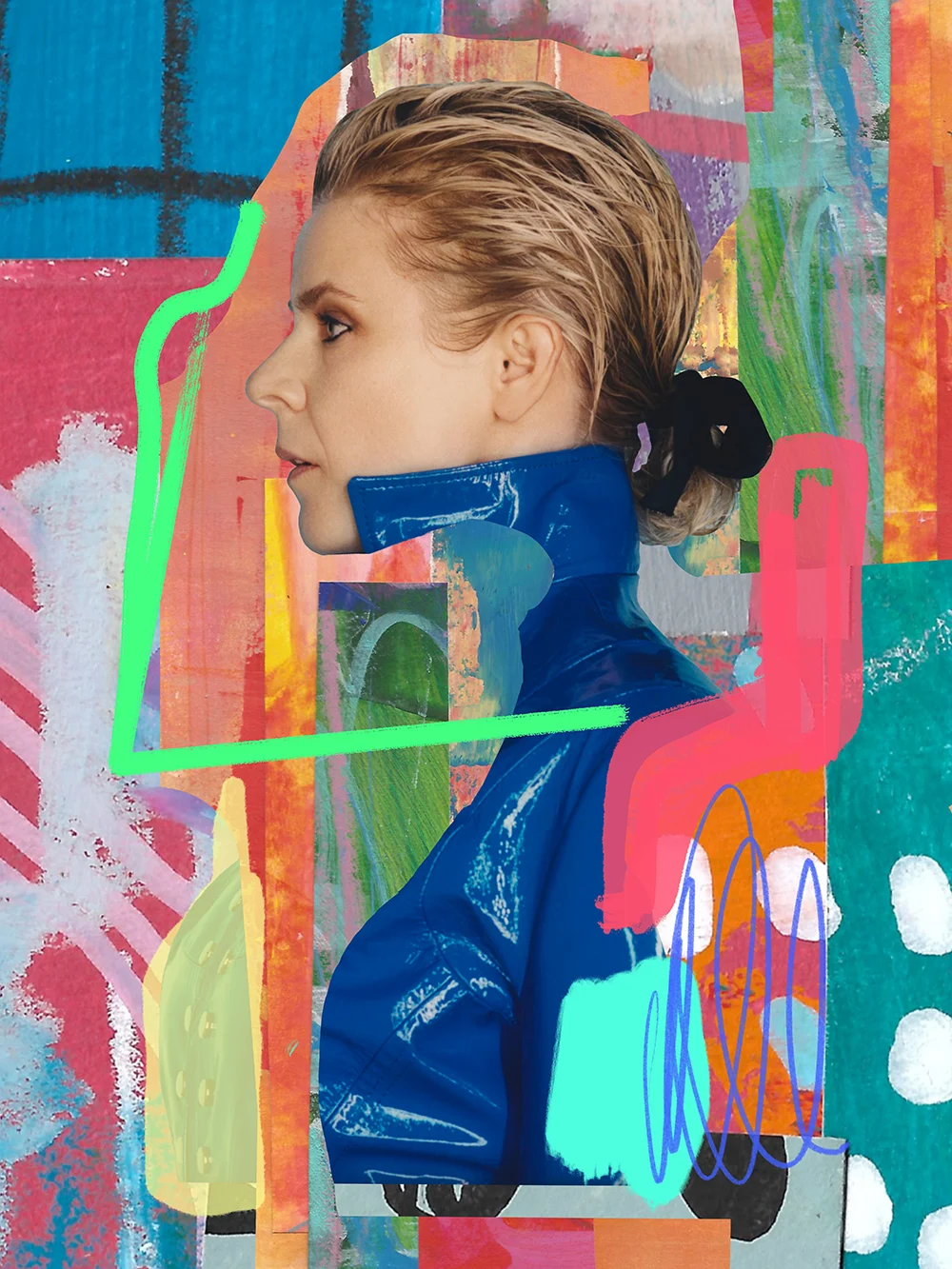
We all need to release, feel and heal and Glenn helps us to do that through his own experiences.
“Keyboard Fantasies is one of the most beautiful records I have ever listened to. I was in dance rehearsals with my collaborator Decida and she played it while we were warming up one day. I was going through a difficult time and the music made me cry, and I also felt very healed by it. It's music with beautiful arrangements and harmonics, polyrhythmic sometimes like club music, repetitive in a way that a lot of spiritual music is, and then with Glenn's warm and sometimes heartbreaking message on top.
I know what it's like to make music and feel healed while you are making it, it's a way to put yourself in a trance; it's like meditation. It can happen when you jam, but I rarely stay in that state when I write songs. Glenn does: it's the purpose of his music, I feel. We all need to release, feel and heal and Glenn helps us to do that through his own experiences.”
Caribou
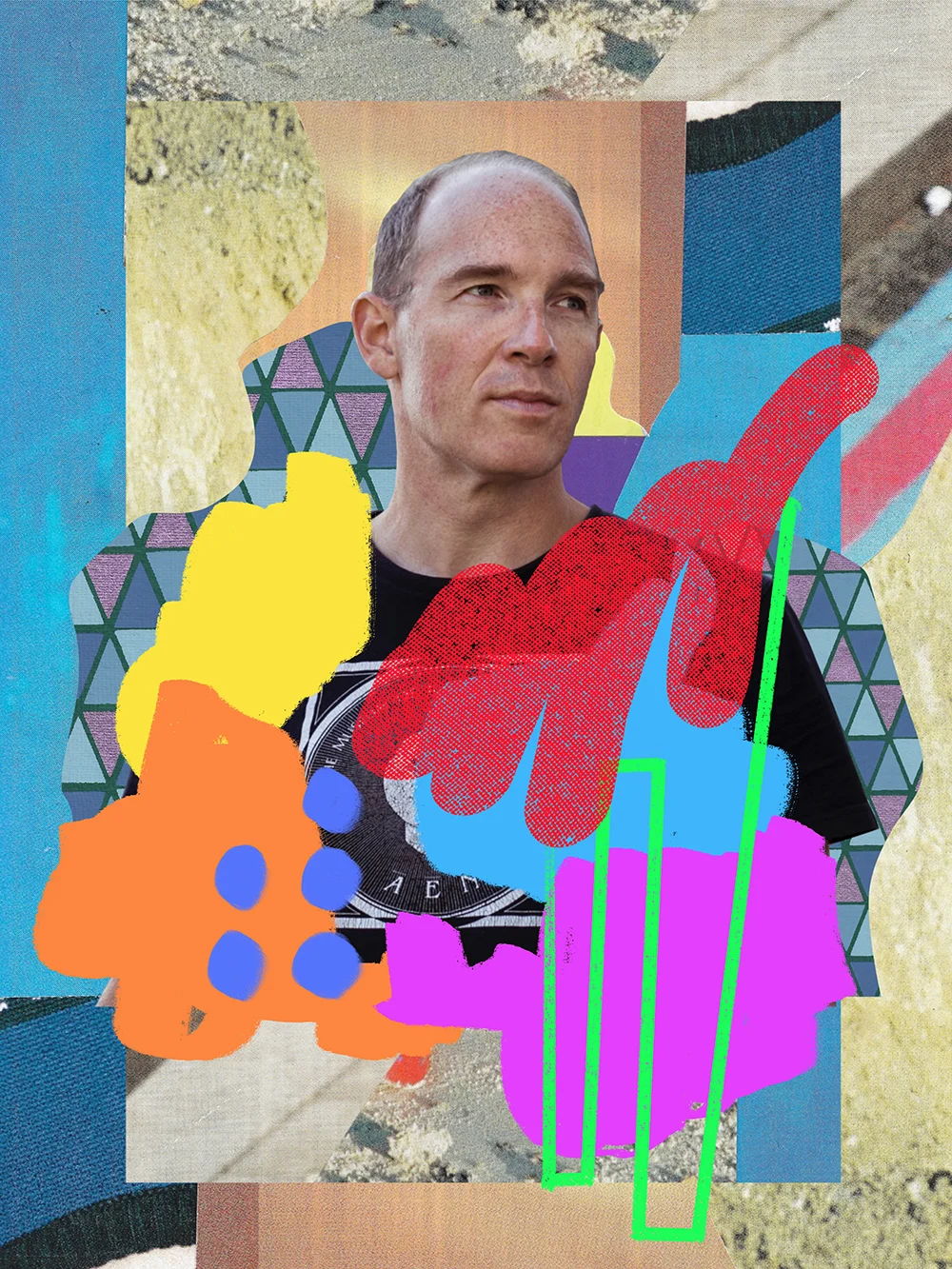
“[There are] weird, fortuitous connections between people who are evangelical about Glenn's music. Once I was in a Dutch radio studio and I had talked about Glenn's music on air, describing how much it had inspired my new album , and after the taping one of the producers on the show pulled me aside and started talking about Glenn's performance at Le Guess Who? festival and how moved he had been by it. He was so overwhelmed by thinking back about it that he started crying.
I've also been moved to tears watching Glenn play, or seeing him speak during his concerts. The emotional heft of Glenn's music hit me very immediately and very potently. I can't think of any other music that has elicited that kind of response. Sure, we're all moved by our favorite music when we're listening to it, but to find that emotion overwhelming just in recollecting it, that's something I'm not sure I've ever really encountered before. Glenn's music is so reassuring, so welcoming and so serene – like the best musical hug imaginable – that it disarms the listener, cutting through our critical faculties and our cynicism.”
Lafawndah
The Egyptian-Iranian artist and self-styled “devotional pop polymath” covered Glenn’s track Don’t Despair for her new album, The Fifth Season.

“For me, Glenn's music sounds like spring. There is an enchanting quality to his music that is a really hard thing to do without it being corny. He occupies a very specific space where it's joyous but it's as if he’s been through it and we're meeting him on the other side of things that were difficult and complicated. I find his music extremely healing; it's probably what the music of my dream childhood movies would sound like. In a way, it’s anti-pop music; Glenn’s music goes in circles – like minimalism or the music of Terry Riley, it’s music that just grows and keeps going. I covered Glenn’s song Don’t Despair on my new album The Fifth Season, which I’ve also been opening my show with for about a year and a half. The melody and the words felt like something I would have wanted to write. It definitely has a timely message.”
Moses Sumney
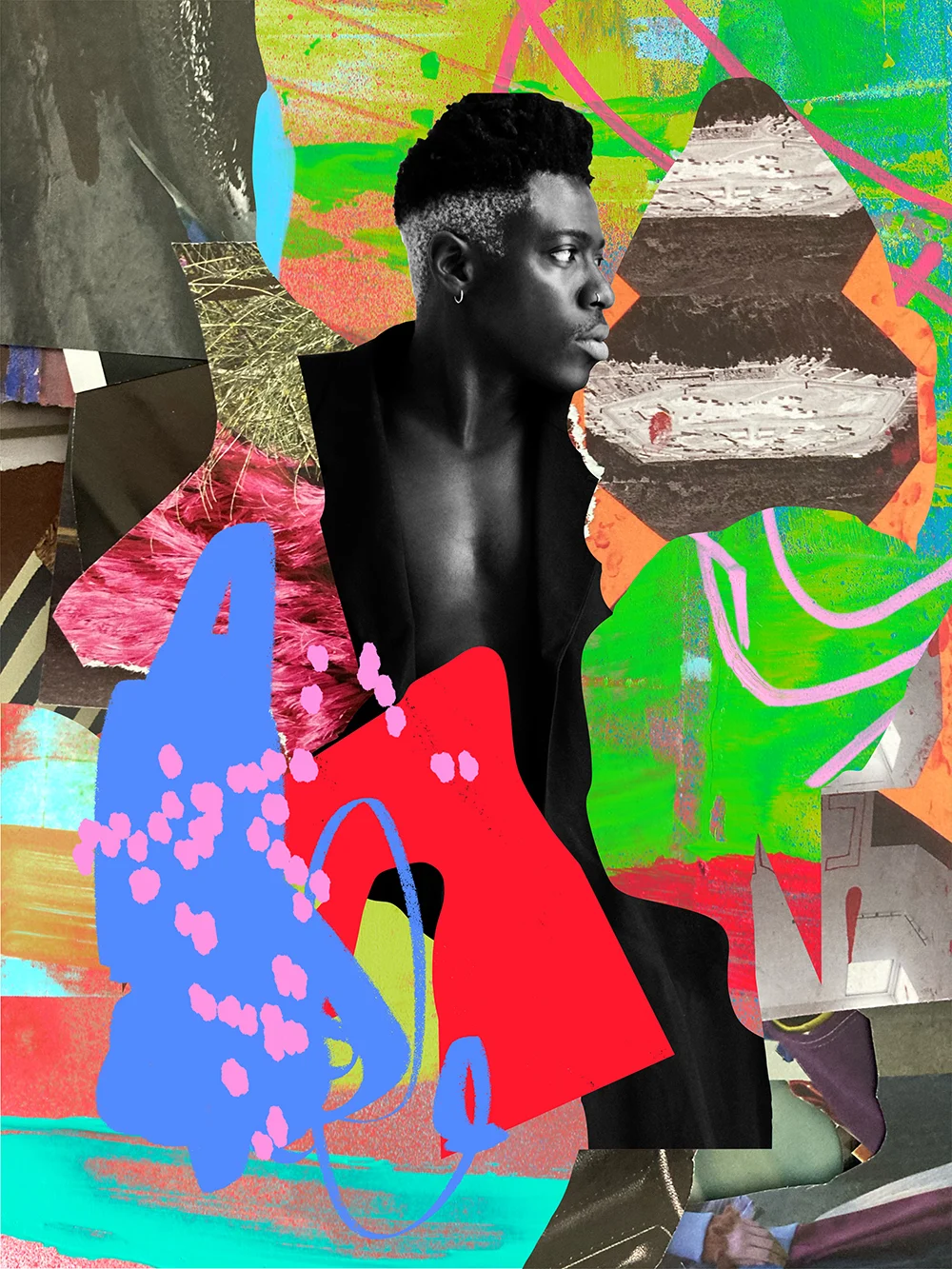
“I was listening to Glenn a lot when I was writing græ. I love the use of his vocal range and the poeticism of the lyrics; it sounds like there are two different people singing at different points, the ability to embody this duality. I do think that Glenn’s identity really speaks to this moment when people are understanding gender in a more complex way than they did in the ‘70s. I think of trans people as a blueprint for what life should be, just understanding nuance and understanding beyond the binary. Musically, Glenn has been doing that for so long. That idea definitely holds more weight now amongst a younger generation that grew up with playlisting, and taking a bit from everywhere and throwing it all together.
I always have it in my head that it's new to be breaking down a genre, but it's not. A lot of artists, especially Black artists, have been doing it since the ‘60s and ‘70s but were not recognized appropriately. Glenn is definitely one of those people who didn't fit into a box and was capable of doing so much more than you would expect from a Black artist of that era. There's such a freedom in his music, especially on a song like Ghost House. So a precedent for this thing that I'm trying to do with genre. Obviously, my records are very different, but I think ideologically and spiritually they’re coming from a similar place.”
It has a very particular quality: art that is created from such a personal place but is also universal.
Moor Mother
The American poet, musician and activist, whose blistering protest music channels Afro-Futurism to riot grrrl, co-curated Glenn’s appearance at Le Guess Who? Festival in 2019 with Devendra Banhart.
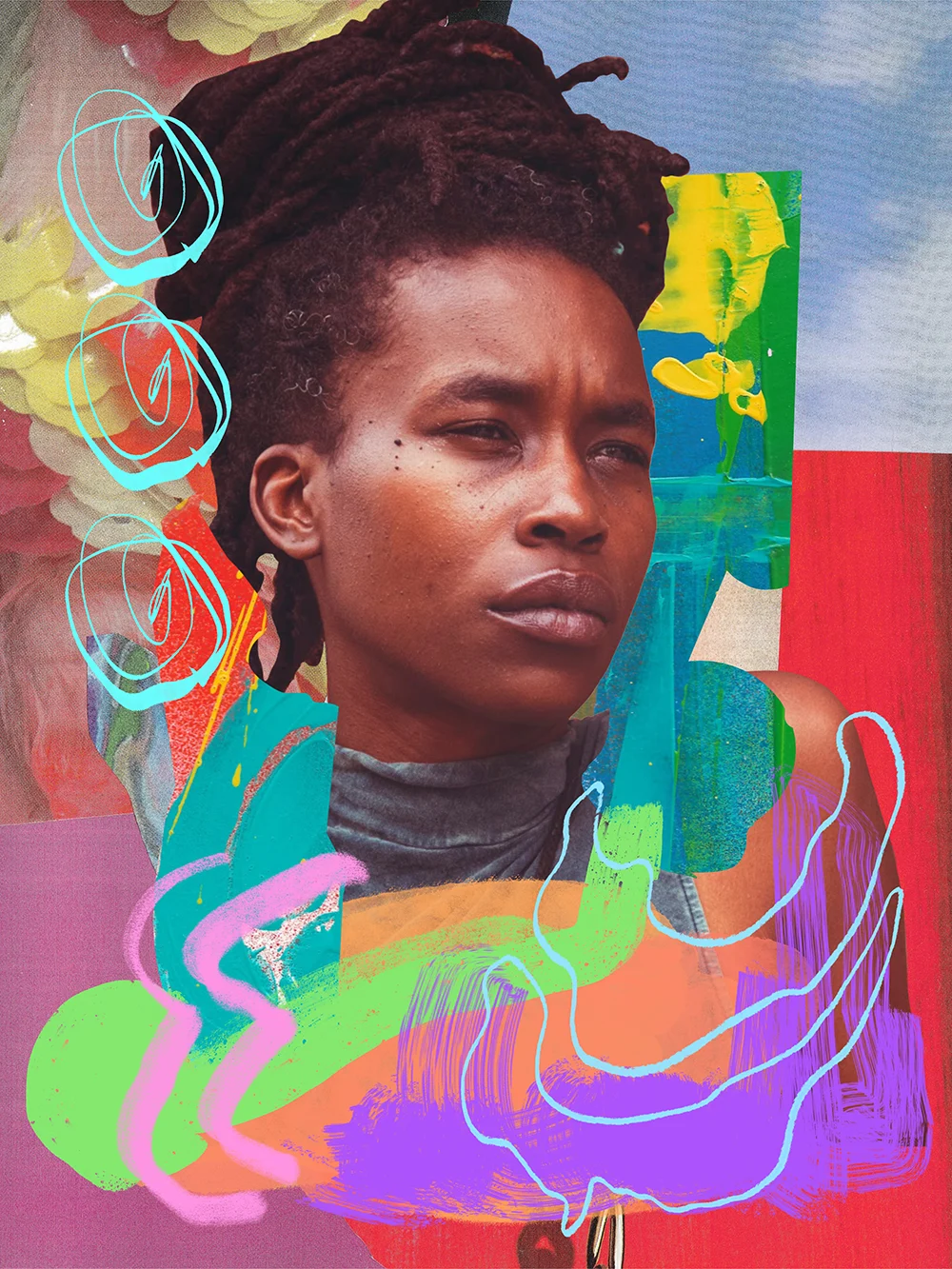
“What struck me about his music was how beautiful it was, but also how fearless. I call him the godfather of fearlessness. It's not really just about the music, it’s about how you hold the music, how you move throughout your life. How much of yourself do you put in your work? And are you affected by your work, and how true you are to yourself in that work? That’s fearlessness, the way is able to be 100% authentic, about one's whole life and as a musician... It’s like you're trying to get to that point as a musician, where you're not so compartmentalized. It's just about going with your own flow within the music.
Keyboard Fantasies speaks about another place that you can go of your own accord. I put it in the same category as Laraaji: an awareness of color, awareness of beauty, respecting the different temporalities of that, enough space and gentleness in the work. That’s what’s so important about breaking down these generational walls: these things need to be passed down in exchange and also this fearlessness, to see that we deserve to have a connection.”
Devendra Banhart
The well-known Venezuelan-American musician co-curated Glenn’s appearance at Le Guess Who? Festival in 2019 with Moor Mother.
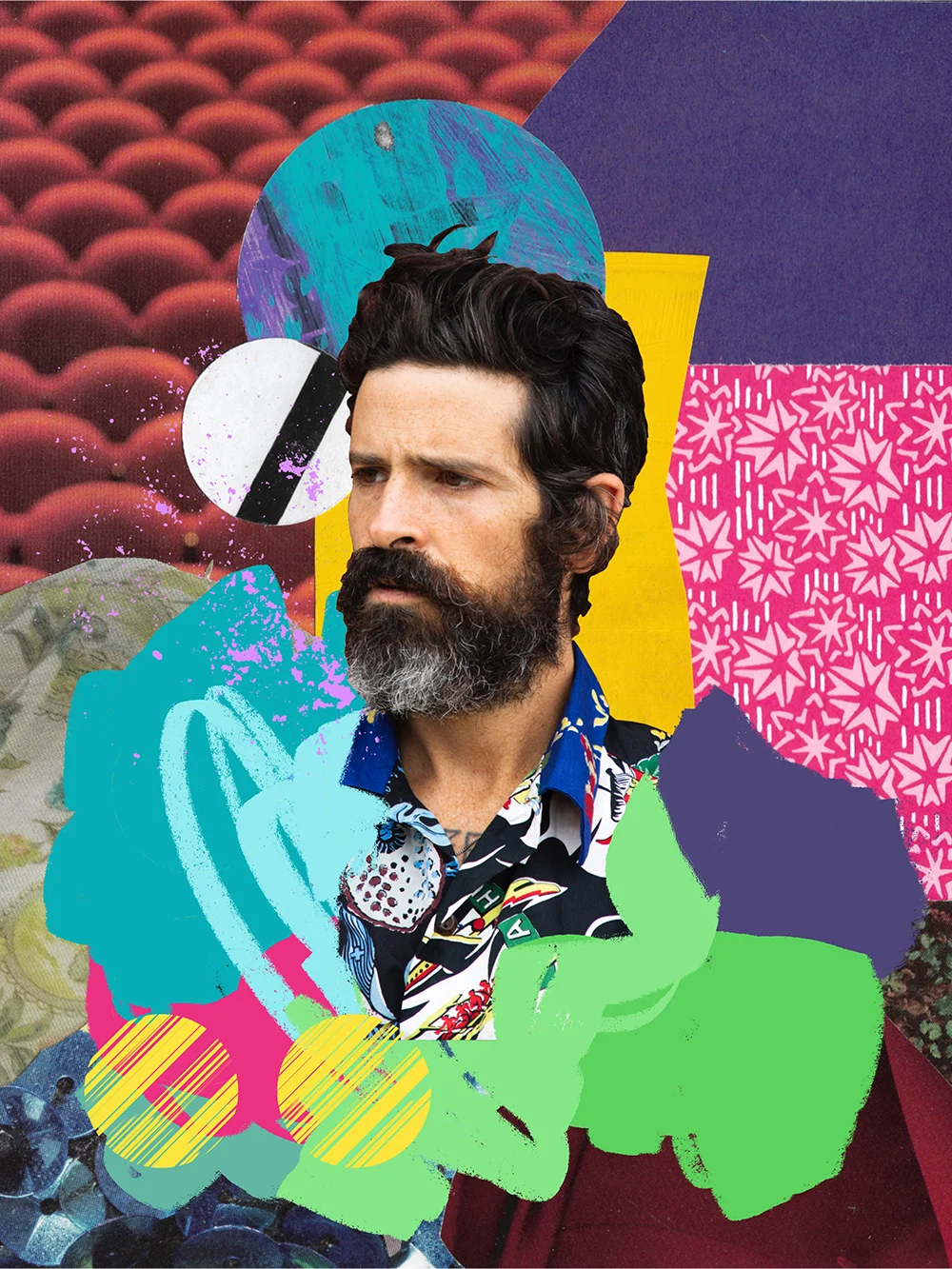
“I went on a pilgrimage to Xochimilco, about an hour out of Mexico City, because Paramahansa Yogananda had written about it as one of the most beautiful places on earth. I’ll never forget driving back and listening to Sunset Village and immediately this rush of love and a cloud-like universal-love-healing-feeling just surged into my being. It was Beverly Glenn-Copeland singing “Let it go, let it go now/ It’s okay…” and I just wept and wept and I realised how important it is to hear that, how healing a mantra that is, how useful, how deep a daily teaching that is. There’s just two things we are subconsciously listening for when we listen to another being singing their song: do they mean it? And do they care about me? Glenn, like all the greats, means it and cares about you.”
Transmissions: The Music of Beverly Glenn-Copeland is out on Transgressive on 25 September

